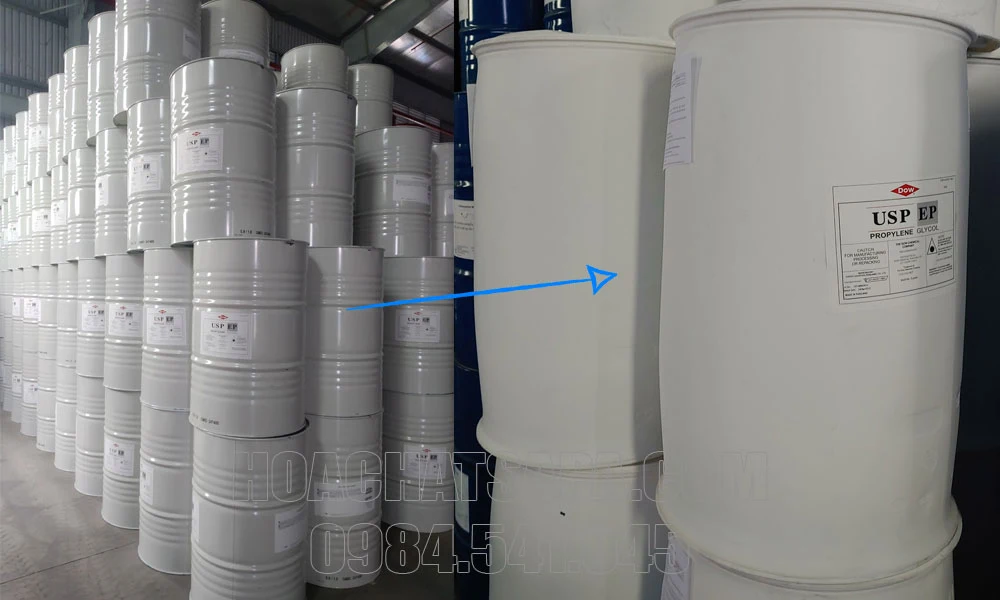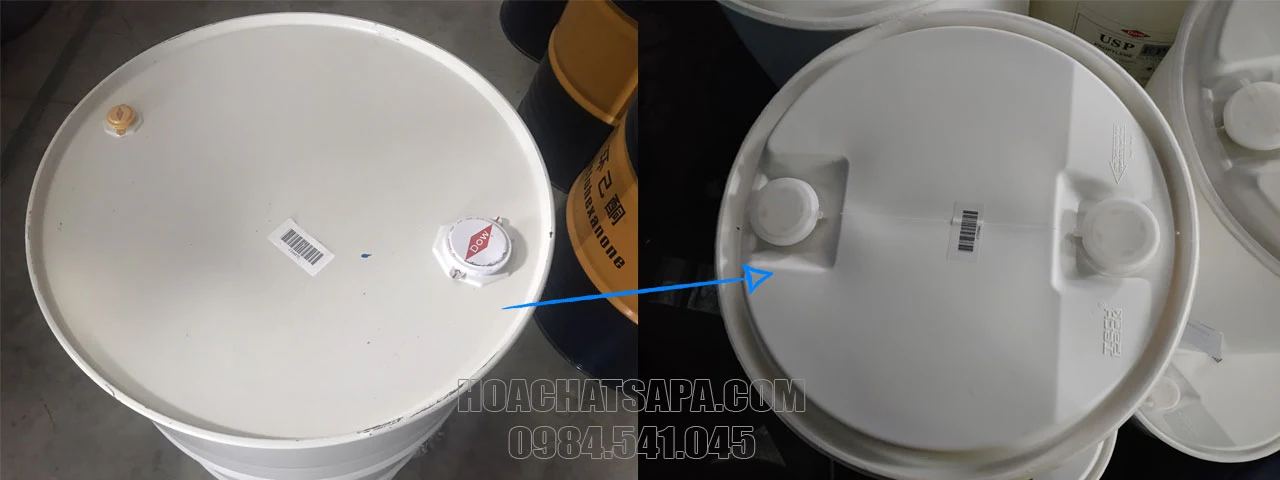Hôm nay, công ty em đã về lô hàng đầu tiên của Propylene Glycol USP/EP (PG dược) theo dạng Phuy nhựa. Và có một số thông báo cụ thể về sản phẩm dưới đây.
Thay đổi cụ thể như sau:
Thay đổi sau đây đối với các trống được đề cập ở trên sẽ có hiệu lực vào ngày 1 tháng 6 năm 2021.
Vật liệu của thùng phuy sẽ được thay đổi từ phuy sắt sang phuy nhựa (cụ thể từ thép carbon sang polyethylene).
Xin lưu ý rằng việc thay đổi này không làm thay đổi trong các thông số kỹ thuật của sản phẩm.
Thay đổi này là thay đổi chung cho tất cả các nhà nhập khẩu ở Việt Nam.
Văn bản thông báo
Nhà máy Dow có gửi văn bản thông báo kèm theo. Anh/chị có thể xem văn bản đã ký dưới đây:
Xem Văn Bản
Xem thêm: Propylene Glycol USP/EP (PGusp) dạng phuy nhựa
What is glycol? If you are in charge of managing a cooling or water system, you may have heard of glycol as one possible component. Glycol is used in some water systems to keep the temperature low and consistent. However, if you are considering taking advantage of the benefits of a glycol cooling system to reduce temperatures or prevent freezing, it is important that you understand what types thqt exist so that you can make a safe and informed decision.
Definition of Glycol
green liquid wondering what is glycolGlycol is an organic compound belonging to the alcohol family. It is more commonly referred to as antifreeze, and it is known to have a sweet taste. However, it can be toxic and is generally fluorescent dyed or clear and slightly oily in terms of consistency.
The Two Types of Glycol
Glycol is an overarching term that encompasses a number of separate chemical formulae. This is why understanding the type that you may need and how it will be used is important; some options are toxic, and others are much safer.
Ethylene Glycol
Ethylene glycol and its derivatives are more toxic and should be used with care. It is most commonly used as antifreeze in automobiles, brake fluid, HVAC Systems, and some human-made fibers. It is derived from ethylene oxide, which comes from ethylene.
Propylene Glycol
Propylene glycol is the non-toxic variant. It is similar to ethylene in its physical properties but is used frequently in foods, oral hygiene products, cosmetics, and HVAC Systems. It helps to preserve materials and retain moisture.
Glycol Uses
In addition to its uses mentioned previously, glycol serves a number of purposes in cooling systems and water systems. One important factor to note is that it is important never to mix different types or brands in your systems, no matter what function you are hoping to achieve; this can cause it to congeal, clog your equipment and leave freeze temperatures virtually unknown.
Glycol Cooling Systems
large silver glycol cooling system in a building basementIn cooling systems, the primary purpose of glycol is to help the system stay as consistently cold as possible without freezing. When glycol is mixed with water, the freezing point of the water drops as low as -60 degrees Fahrenheit. This means that a system that needs to keep large areas cool, such as at an ice rink, can remain frigid and even below the freezing point of water without freezing itself.
In order to calculate how much water to glycol is needed for the solution that is used in the chilling system, you will need to calculate what temperature the system will need to achieve. This temperature is typically just the saturated suction temperature in the evaporator, which tends to be approximately 10°F below the chiller set point temperature. Normal HVAC system temperature call for 35-45% solutions with protection between -10*F to + 10*F.
Used in Closed-Loop Water Systems
In closed-loop water systems, glycol can serve an additional purpose besides simply regulating water temperature. As its more common name “antifreeze” suggests, glycol can prevent the water in a closed-loop water system from freezing. This protects pipes from bursting or cracking as ice crystals form and keeps systems safe from exposure to freezing temperatures. Ethylene glycol is the standard in the industry for freeze protection, but it is not always the right choice. Because it can be toxic, using ethylene glycol in systems where food or drinking water is nearby may be a risk.
Also discharge into surface or sanitary water systems could be an environmental issue. In these instances, such as food service, propylene glycol is more common. However, the freezing point of propylene glycol is not quite as low as that of ethylene glycol, so understanding which option is right for you will require a close examination of your system and your situation by an





